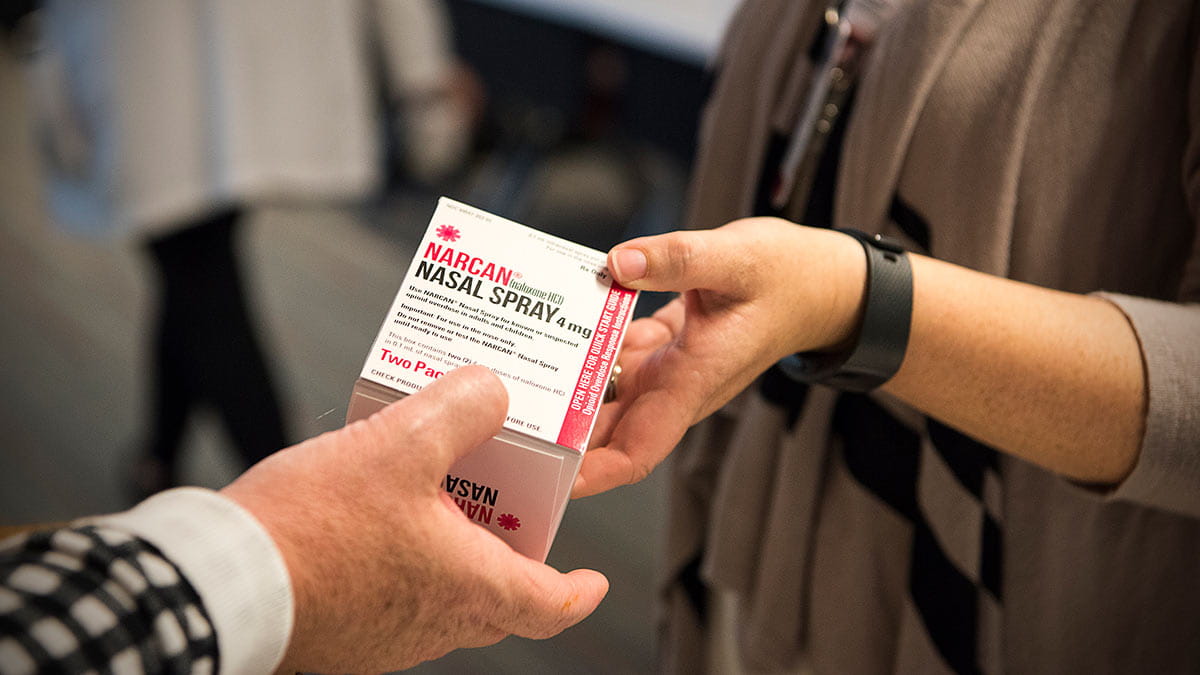How to care for yourself while loving someone with addiction
Addiction affects the entire family, not just the person with addiction.
 Robert Bailor is a counselor who routinely works with people with chemical addiction and their families at Talbot Hall, the inpatient and outpatient addiction medicine facility at The Ohio State University Wexner Medical Center, and he offers these tips when someone you love is addicted to heroin, opiates, other hard drugs or alcohol:
Robert Bailor is a counselor who routinely works with people with chemical addiction and their families at Talbot Hall, the inpatient and outpatient addiction medicine facility at The Ohio State University Wexner Medical Center, and he offers these tips when someone you love is addicted to heroin, opiates, other hard drugs or alcohol:
Recognize that you do not deserve the way the addict’s behavior and choices negatively affect you.
Love and take care of yourself
Have the same amount of concern for yourself as you do for the addict/alcoholic in your life. Failing to do this sets you up for caregiver burnout. Some practical ways to do this:
- Find things that give your life meaning and devote yourself to them. Connect with a higher power and/or discover a greater good to identify with.
- Self-care means working to excel in the basic dimensions of human living: biological, psychological, social and spiritual. For example, taking care of yourself can mean eating well, learning new skills, enjoying sunrises and sunsets, performing acts of kindness and meditating.
Taking care of yourself does not mean loving your addict/alcoholic less. Strengthening your mental clarity and personal character will help you make sound judgments when dealing with your addict/alcoholic.
Keep an emotional distance from the dysfunctional behaviors of the addicted lifestyle (i.e., don’t try to take on the addict’s problems as your own).
- Sometimes this involves making hard decisions that make you feel like you are abandoning your addict/alcoholic or contributing to his or her harm, such as cutting off money or kicking him or her out of your house.
- Loving detachment means doing such things within reason and as last resorts, hoping that these actions help your addict/alcoholic realize that he or she is living an unmanageable and harmful lifestyle.
- Genuine love for the addict/alcoholic means prompting that person to make the decision to seek out a lifesaving way of life. This may be difficult and scary for the family member, but to support the addict/alcoholic's addicted lifestyle is to be complicit in his or her destruction.
If the addict yells at you, is screaming or using threatening language in an attempt to bully you, do not yell or scream back. Calmly change the subject: “Are you done?” “Are you ready to go to the mall?” This allows the person’s energy level to deflate and de-escalate. But what if your addict/alcoholic refuses to de-escalate? Then you need to protect yourself within reason, and in the spirit of loving detachment you may need to employ some "last resort" responses (see above).
Take time to reflect
Humbly accept that you, as the family member of the addict, have a right and duty to seek to understand your life purpose, mission and destiny. Some ways to develop a vision of personal excellence:
- Think through what your life is really all about.
- Spend time making a deliberate effort to connect with your higher power so that you keep your spiritual aim on target and you gain the strength necessary to overcome all challenges in your life.




